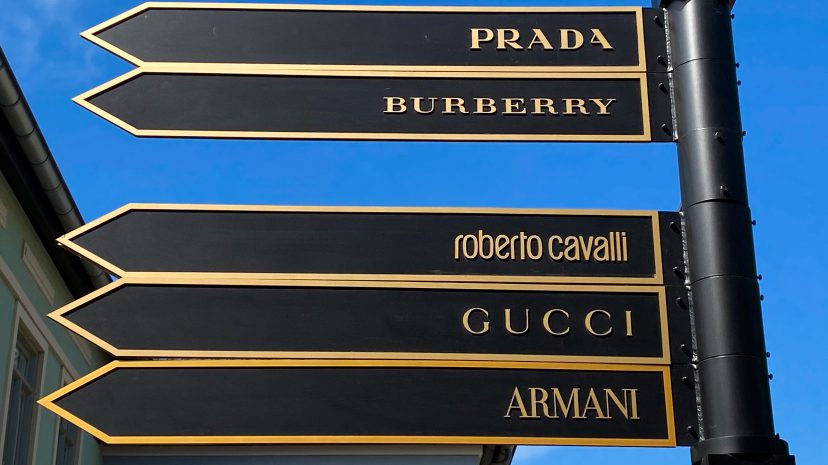If you want to avoid having your products sold by too many dealers and prefer to work with a manageable group of distributors or if your products are sold by dealers who do not fit your marketing strategy, you may want to consider a selective distribution system. Without a proper selective distribution system, you run a fairly high risk of violating antitrust laws. However, keeping your distribution system closed is not always prohibited.
What is selective distribution?
In selective distribution, a supplier chooses a select group of distributors to sell its products. This restricts competition: other parties are excluded from selling the products, resulting in fewer suppliers and perhaps also a reduction of price competition. Selective distribution systems may therefore infringe antitrust laws.
Infringements can have major negative consequences. End of 2018, the European Commission found that fashion brand Guess operated a selective distribution system in violation of the cartel prohibition. The restrictions that Guess had imposed on distributors over the years resulted in a fine of almost 40 million euros.
What is necessary for a selective distribution system to comply with antitrust rules?
It follows from case law that a selective distribution system would not violate the cartel ban if the following (so-called Metro) criteria are met:
- the characteristics of the product make selective distribution necessary;
- the resellers are chosen on the basis of objective qualitative criteria which are laid down uniformly and applied without discrimination; and
- these criteria do not go beyond what is necessary.
The need for selective distribution is particularly relevant for luxury products and complex or technical products. Whether the selection criteria meet conditions 2 and 3 in a concrete situation requires a careful test and varies from situation to situation.
EU Block Exemption Regulation provides even more freedom
If these Metro-criteria are not satisfied, that does not immediately mean that selective distribution is prohibited. You may then be able to rely on the European Block Exemption Regulation for vertical agreements.
In order to make this Block Exemption available, you must first choose the territory within which you wish to apply selective distribution. In that territory, you sell the products only to selected distributors. In turn, the distributors may only sell the products to end-users and thus not to other dealers. They may, however, supply other authorized distributors; cross-supplies should be possible.
Another condition is that the market shares of you and the distributor do not exceed 30% (on the relevant selling and purchasing market respectively). The calculation of these market shares is subject to specific rules.
Within a selective distribution system that fits the criteria of the Block Exemption, suppliers have a lot of freedom. For example, the selection criteria need not necessarily be justified by the nature of the product, the criteria need not be uniform for all distributors, and you may refuse candidates even if they meet the selection criteria. Furthermore, it is permissible to limit the number of distributors; think of a maximum per territory or depending on the market growth. All these “freedoms” are conditional upon fulfilment of the conditions of the Block Exemption. This applies continuously: growth of market share above 30% should lead to renewed assessment of the situation.
The Block Exemption would not apply for selective distribution in combination with territorial restrictions (see blog exclusive distribution) although this may change after the revision of the Block Exemption Regulation which will probably happen around summer 2022. Precise coordination is essential here. Location clauses though are permitted. Non-compete obligations that require distributors to purchase the products only from the supplier are not permitted in a selective distribution system.
Individual exemption
Does your company not meet the Metro-criteria or the conditions of the Block Exemption? Then it is necessary to assess whether the agreement qualifies for an individual exemption. This requires a thorough assessment which may be difficult, but not impossible. In summary, the negative effects on competition must be outweighed by the advantages and a fair share of those advantages must be passed on to consumers. Such an individual exemption may be useful if selectivity with regard to the group and number of resellers is necessary to motivate dealers to make significant investments. Fulfilment of the conditions for an individual exemption is not easily assumed and must be demonstrable and quantifiable, we advise not to take this too lightly.
Prohibition on selling through online marketplaces and non-competition
Perhaps you are wondering if a selective distribution system allows you to restrict sales through online platforms such as Amazon? It depends. Please contact us and we will be happy to explain.
Competition law assessment: not an unnecessary luxury
Be sure to verify your questions relating to selective distribution with a specialist in competition law. The risks of violations are, as appears from the Guess-case, considerable, both for the company involved and for managers personally. One cannot be too careful. As external counsel, we not only support companies but also law firms and consultants. Please feel free to contact us to exchange views.
Note: At the moment of publication of this blog, the Vertical Block Exemption Regulation is under review by the European Commission. It may be necessary to review your distribution agreements. Do contact us should you wish to discuss.
